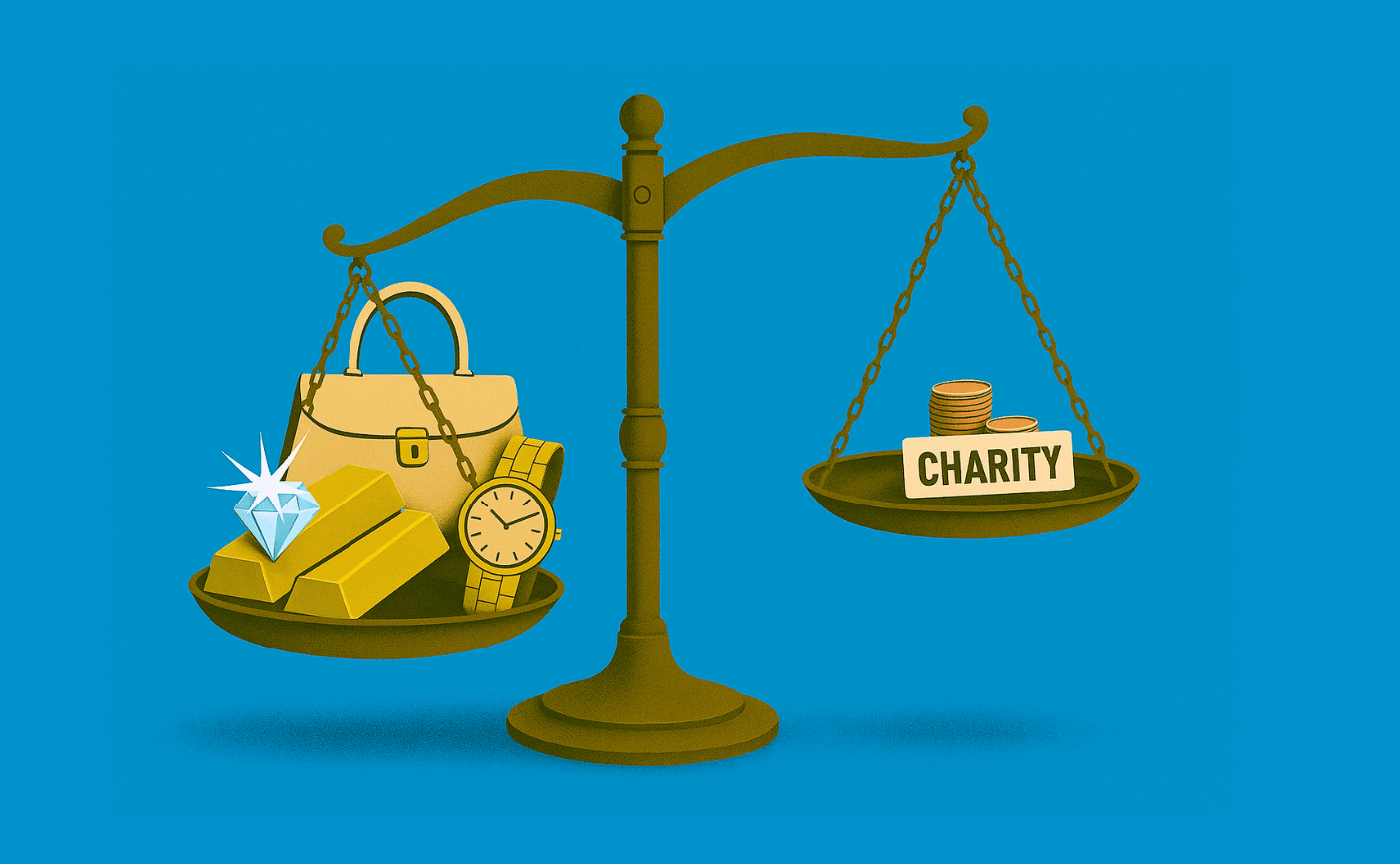“‘Quiet luxury’ has been replaced by loud, proud, and flashy,” Katie Couric recently proclaimed, analyzing the June 2025 Bezos-Sanchez nuptials amid the shifting sands of billionaire etiquette. America’s wealthiest used to feel a sense of obligation to the public that toned down their largesse, or at least compelled them to give back more abundantly, she reasoned — which protected robber barons and society dames from revolution or dispossession.
In our era of absurd and extreme wealth inequality, it’s true that many of our tech titans have disregarded the valuable reasons — both selfish and selfless — to practice philanthropy. But many of them actually have committed on the record to giving back, or, at least, they’ve seemed to.
Fifteen years ago, Bill Gates, alongside his then-wife Melinda French and Warren Buffett, founded the Giving Pledge, a commitment and encouragement for their fellow billionaires to give half of their fortunes away either in their lifetimes or upon their passing. The Pledge drove home the idea that philanthropy was a pillar of any respectable 21st-century billionaire’s portfolio.
Since its founding, around 13-14 percent of the country’s billionaires have made the Giving Pledge, and many have invested billions of dollars in nonprofit initiatives to save lives and create opportunity. Bill Gates himself recently committed the vast majority of his assets to charity in the next 20 years, accelerating his personal giving timeline.
But overall, Giving Pledgers have mostly fallen short on their commitments. My team at the Institute for Policy Studies’ recent report, The Giving Pledge at 15, found that the original Giving Pledgers who are still billionaires have collectively gotten 283 percent wealthier (or 166 percent when adjusted for inflation) as the clock keeps ticking. And just 8 of the 22 deceased Pledgers — together worth $43 billion — ended up fulfilling their Pledges.
Why? Some are getting wealthier faster than ever before in human history, and struggle to administer what they consider responsible philanthropy at a proportional pace. And many can easily exploit deficiencies in our charity system to accrue financial and reputational benefits, without having to actually benefit the public or cede control of their assets.
An estimated 80 percent of the gifts the original Pledgers have given to charity — around $206 billion as of this spring — went into private foundations, often led by subsequent generations of the same families. These foundations tend to create a lag time before gifts reach working charities, though these families get tax deductions up front. Everyday taxpayers chip in up to 74 cents per dollar in lost tax revenue as these donations idle.
We estimate these billionaire family foundations have a median annual payout rate of 9.2 percent. That’s better than the minimum of 5 percent our federal law mandates foundations give away each year, to be sure, but their cadence of giving is clearly not making a dent in their massive fortunes.
Billionaires also favor transferring billions in assets to intermediary vehicles like donor-advised funds and LLCs, which are subject to minimal requirements for transparency and contribute to the encroachment of tech and finance industry profit-seeking tactics into the administration of philanthropy.
Elon Musk is an excellent example of a Giving Pledger who uses dubious tactics to avoid, well, giving: A signatory since 2012, Musk has a private foundation and has participated in many reputation-burnishing charitable events. But his Pledge fulfillment strategies, at least those that are public, have involved maximizing tax benefits from stock transfers, using tax-exempt funds to build schools in his company towns or for his children, and ping-ponging donations between charitable intermediaries to meet legal payout requirements without actually conducting charity.
If all of the living 2010 Pledgers who are still billionaires fulfilled their pledges today, they would direct an estimated additional $367 billion to charity. That’s just shy of the $392 billion given by all individuals in the U.S. in 2024. That’s a few dozen people capable of an impact comparable to that of hundreds of millions of the rest of us, combined.
Polling suggests that most Americans don’t know about this stagnating philanthropic wealth — and when they do, they oppose perpetually subsidizing it. Some ultra-wealthy donors have keyed into the democratic dangers this hoarding and influence create, and seek to change policy and giving norms on their own kind’s behalf, like the Donor Revolt for Charity Reform campaign, the Patriotic Millionaires, and Resource Generation.
And, hey, it’d be a welcome development if Pledgers took after the most generous and effective example to date: That of Duty Free Shoppers founder Chuck Feeney, who gave away almost all of his $8 billion fortune (therefore surrendering his billionaire status) before he passed away.
The weak realization of the Giving Pledge over the last 15 years clearly shows that our country can't afford to maintain philanthropy in its current form. Our tax code under-regulates wealth accumulation and over-subsidizes billionaire philanthropy that doesn’t deliver. When even the billionaires who have made a public promise to reduce their wealth can’t make a difference, that tells us everything we need to know.
Bella DeVaan is the associate director of the Charity Reform Initiative and co-editor of Inequality.org at the Institute for Policy Studies.









